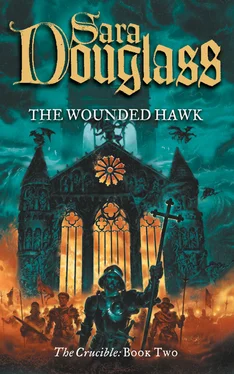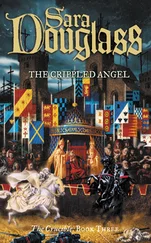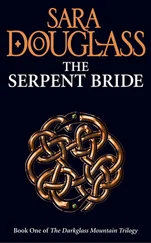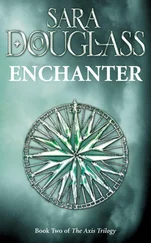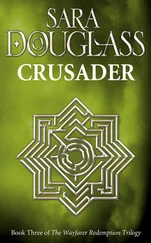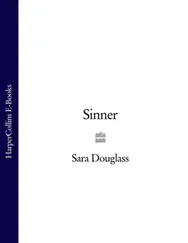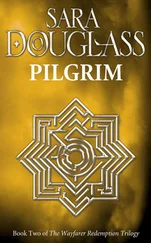1 ...7 8 9 11 12 13 ...30 “Hal, wait! There is one other thing!”
Visibly impatient, Bolingbroke raised his eyebrows.
“A few days before we left Halstow Hall, Wycliffe, Wat Tyler and two Lollard priests, Jack Trueman and John Ball, came to visit.”
All impatience on Bolingbroke’s face had now been replaced with stunned surprise. “What? Why?”
“To irritate me, no doubt.” Neville paused. “Wycliffe said he was on his way to Canterbury, intimating it was with the leave of your father. Thus, Wat Tyler as escort.”
Bolingbroke slowly shook his head. “As far as we knew, Wycliffe had gone back to Oxford. But he is in Kent?”
Neville nodded, and Bolingbroke frowned, apparently genuinely concerned.
“I must tell my father,” he said, then corrected himself. “No. I will make the enquiries. There is no need to disturb my father.”
Then, with a forced gaiety on his face, Bolingbroke once more indicated the door. “And now, we must return to our women, Tom!”
And with that Bolingbroke disappeared into the corridor as Neville, thoughtful, stared after him.
Cecilia Bohun, dowager Countess of Hereford, gasped, and her face flushed.
“Madam?” Mary said, leaning over to lay her hand on her mother’s arm.
Cecilia took a deep breath and tried to smile for her daughter. “I fear you must pardon me, Mary. I—”
She suddenly got to her feet, and took three quick steps towards the door. Collecting herself with an extreme effort, she half-turned back to her still-seated daughter.
“Before we sup … I must … the garderobe …” she said, and then made as dignified a dash to the door as she could.
Margaret did not know what to do: what words should she say? Should she say anything? Did the Lady Mary expect her to go after her mother? Would the Lady Mary hate her for witnessing her mother’s discomposure?
“Margaret,” Mary Bohun said, “pray do not fret. My mother will be well soon enough. It is just that … at her age …”
Grateful that Mary should not only have recognised her uncertainty, but have then so generously rescued her, Margaret smiled and nodded. “I have heard, my lady, that the time of a woman’s life when her courses wither and die is difficult.”
“But we must be grateful to God if we survive the travails of childbed to reach that age, Margaret.”
Margaret nodded, silently studying Mary. She was a slender girl with thick, honey-coloured hair and lustrous hazel eyes. Not beautiful, nor even pretty, but pleasant enough. However, unusually for a woman of her nobility and inheritance, Mary was unassuming far beyond what modesty called for. When Margaret had first sat down, she thought to find Mary a haughty and distant creature, but in the past half hour she had realised that, while reserved, the woman was also prepared to be open and friendly with a new companion who was not only much more lowly ranked than herself, but whose reputation was besmirched by scandal; Mary must certainly have heard that Margaret’s daughter was born outside marriage, even if she had not heard of Margaret’s liaison with the Earl of Westmorland, Ralph Neville, while in France.
Margaret also realised that Mary was, as Hal had suggested, tainted with a malaise; deep in her eyes were the faint marks of a slippery, sliding phantom, the subterranean footprints of something dark and malignant and hungry.
Margaret shuddered, knowing that an imp of ruin and decay had taken up habitation within Mary. Giggling, perhaps, as it waited its chance.
Having seen that shadow, Margaret knew that Mary’s slimness might not all be due to abstemious dining habits, or the pallor of her cheeks not completely the result of keeping her face averted from the burning rays of the sun, and that the lustrousness of her eyes might be as much due to an as-yet unconscious fever as to a blitheness of spirit.
Mary’s affliction was as yet so subtle, so cunning, that Margaret had no doubt that Mary herself remained totally unaware of it.
Yet how like Hal, she thought, to have seen this affliction and to have realised its potential. And how sad that this lovely woman was to be so used. Treasured not for her beauty of character, but for the speed of her impending mortality.
“My lady,” Mary said, frowning slightly, “why do you stare so?”
Margaret reddened, dropping her eyes. “I am sorry, my lady. I was … merely remembering my own doubts on the eve of my marriage, and pitying your own inevitable uncertainties.”
As soon as she’d said those words, Margaret’s blush deepened. What if Mary had no uncertainties? What if she chose to view Margaret’s words, as well as her staring, with offence?
“My lady,” Margaret added hastily, “perhaps I have spoken ill-considered words! I had not thought to imply that—”
“No, shush,” Mary said. “You have not spoken out of turn.”
She hesitated, biting her lip slightly. “My Lady Margaret … I am glad that you are to be my companion. I shall be grateful to have a woman close to my own age to confide in.”
Mary’s eyes flitted about the chamber to make sure that the several servants about were not within hearing distance. “You have been a maid, and now are married with a child. You have undertaken the journey that I am soon to embark upon.”
Margaret inclined her head, understanding that Mary was uncertain about her forthcoming marriage. Well, there was nothing surprising about that.
“My lady,” she said, “it is a journey that most women embark upon. Most survive it.”
If not unscarred, she thought, but knew she must never say such to Mary.
“My Lord of Hereford,” Margaret continued, “will no doubt be a generous and loving husband.”
Again Mary glanced about the chamber. “Margaret, may I confide most intimately in you, and be safe in that confidence?”
Oh, Mary, Mary, be wary of whom you confide in!
“My lady, you may be sure that you shall be safe with me.”
Even as she spoke the words she initially thought would be lies, Margaret realised that they were true. Whatever Mary told her would be repeated for no other ears.
Mary took a deep breath. “Margaret … the thought of marriage with Bolingbroke unsettles me greatly. He is a strange man, and sometimes I know not what to make of him. I wonder, sometimes, what kind of husband he shall prove to be.”
Margaret briefly closed her eyes and sent a silent prayer to Jesus Christ for forgiveness for the lie she knew she now must speak.
“My lady,” she said, smiling as reassuringly as she could, “your fears are but those of every maid approaching her marriage bed and who fears the unknown. Rest assured that my Lord of Hereford will surely prove the most loving of husbands and one that most women would be more than glad to have in their beds.”
Mary’s eyes searched Margaret’s face, and she began to say more, but was interrupted by the opening of the far door.
“Mary! Margaret!” Bolingbroke strode into the chamber, Neville at his shoulder. “Supper awaits! Come, cease your girlish gossiping and take our arms so that we may make our stately way to the hall where my Lord and Lady of Lancaster await us.”
When Margaret gave her arm to Mary to aid her to rise, she was shocked at the tightness of Mary’s grip.
After Compline, the Feast of the
Translation of St Cuthbert
In the first year of the reign of Richard II
(deep night Monday 5th September 1379)
—iii—
Neville was late back to the chamber he shared with Margaret. Lancaster and Bolingbroke had kept him for several hours after supper had ended, discussing and debating the treaty about to be signed in Westminster. Neville had been disturbed by Lancaster’s appearance: he seemed tired and listless, as if trying to advise and guide Richard had brought him years closer to his grave.
Читать дальше
